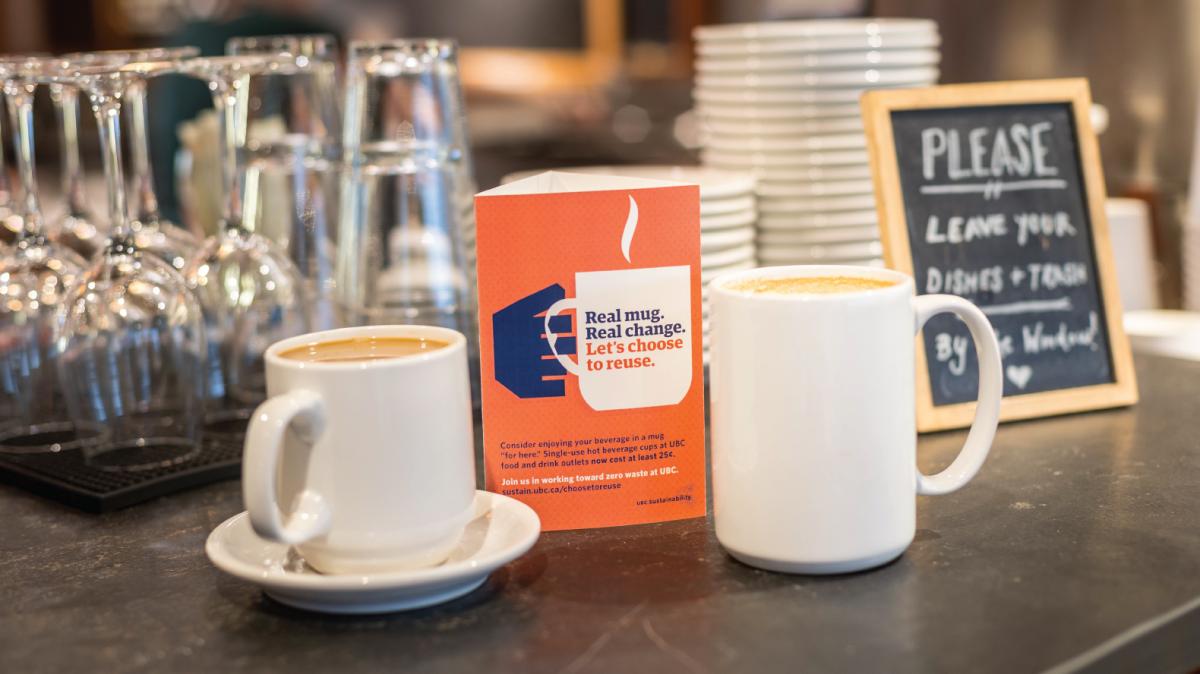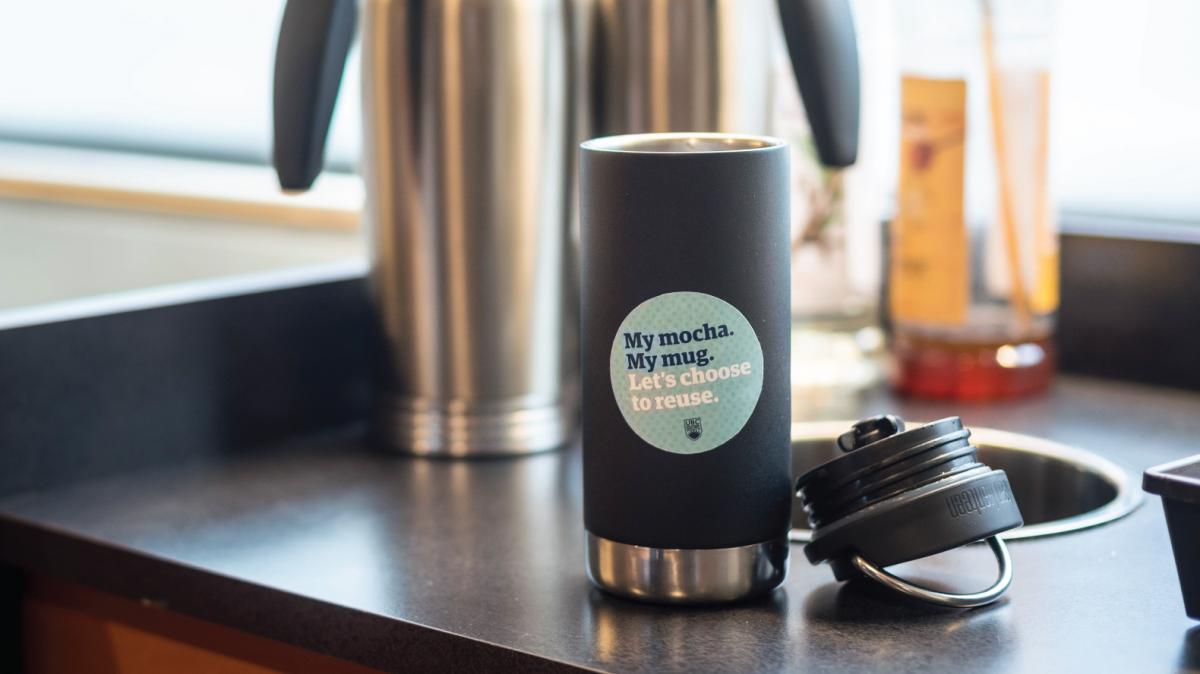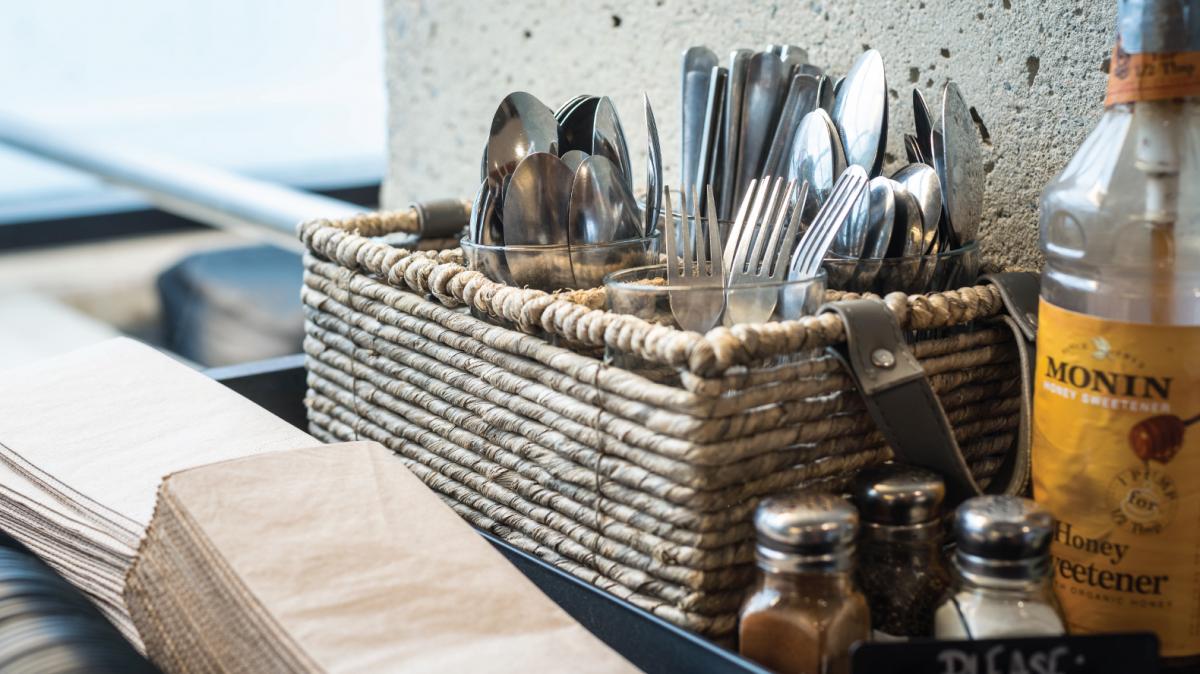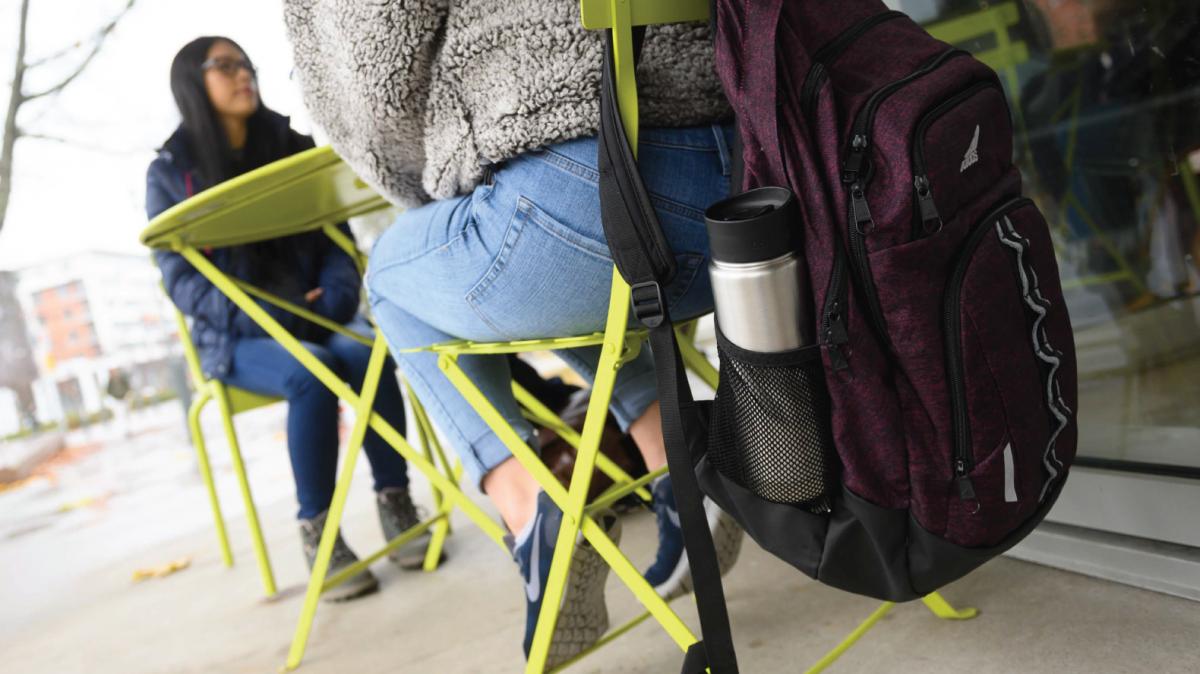The UBC Vancouver community is working to reduce the use of single-use food and drink ware. We’re encouraging students, faculty and staff to choose reusable mugs, water bottles, containers, and cutlery instead.
The move is part of UBC’s Zero Waste Food Ware Strategy, aimed at keeping as many single-use coffee cups, plastic straws, bags and cutlery out of landfills and the environment as possible.
For more detailed information and requirements for businesses, please visit the Zero Waste Food Ware Strategy web pages.


HOW CAN YOU MAKE A DIFFERENCE?
- To meet UBC’s target of a 50% reduction in single-use coffee cups, please bring a reusable mug or enjoy your beverage in a mug “for here” rather than “to go,” where available. Single-use cups at UBC food and beverage outlets cost at least $0.25.
- Bring your own food-ware or dine in when possible. Single-use food containers such as clamshells and bowls at UBC food outlets cost at least $0.50.
- Bring your own carry bag whenever possible. Single-use carry bags cost a minimum of $0.25.
- Retailers are offering smarter, more sustainable materials for single-use items. However, we encourage you to bring your own reusable cutlery. Acceptable single-use cutlery will only be available on request.
- Retailers have discontinued certain items, such as foam cups and plastic bags. Plastic straws will still be available upon request for accessibility purposes.
To learn more about the Zero Waste Food Ware Strategy and updates to the policy, visit the Campus and Community Planning Website.


WHY CHOOSE TO REUSE?
UBC Community Leads Change
- In 2018, a student-led petition gathered over 4,000 signatures from the campus community calling for a campus-wide ban on single-use plastics.
- As a long-standing leader in global sustainability, UBC has an opportunity to lead the region in reducing single-use items and to make an impact far beyond our community.
- Single-use coffee cups are a global problem. Canadians toss an estimated 1.5 billion every year, equivalent to more than half a million trees. The plastic lining that makes the cups waterproof also makes them difficult to recycle.
- Disposable cups, lids and sleeves make up almost 50 per cent of street trash-can waste. Plastic waste chokes landfills and devastates oceans.
FAQ
When was the Zero Waste Food Ware Strategy launched and how has it been affected by the pandemic?
The Strategy became effective January 2020. With the onset of the pandemic, UBC activity on this initiative was paused. As of January 2022, UBC has resumed engagement and has reset the original implementation schedule, making 2022 effectively year one of the Strategy implementation.
Where does the money go?
Any profits from UBC Food Services outlets go to supporting students and UBC’s academic mission. Other food-service businesses determine individually how to use the fee; UBC does not collect it.
